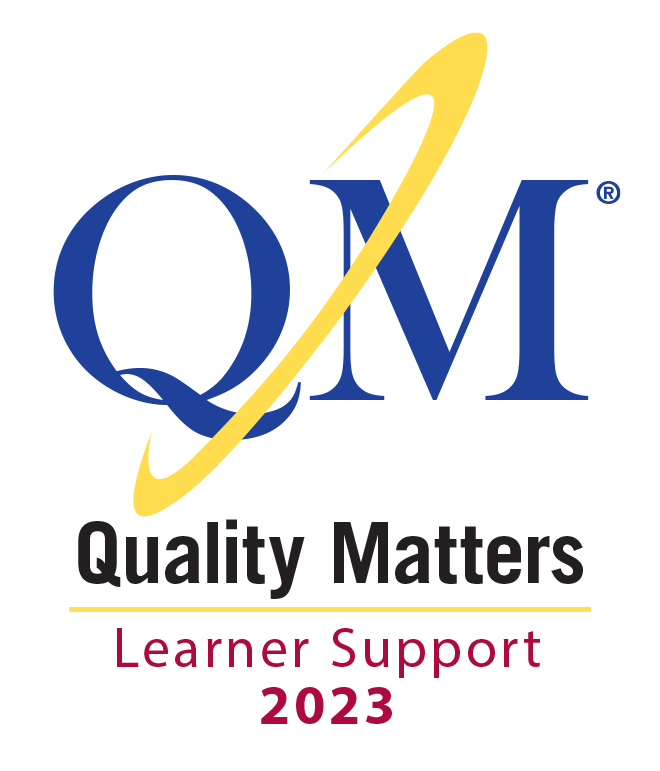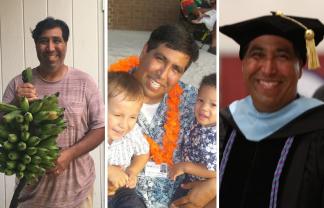Questions? Request Information
Degree Completion Journey
Break into the world of childcare and build a foundation of success when you embark on your associate degree. Your coursework will focus on important topics in early childhood education, such as development, learning assessment, special learners, and instructional strategy.
To earn your associate degree in early childhood education at the University of Arizona Global Campus, you must complete 67 credits. A total of 18 credits must be completed at UAGC to meet the residency requirement. You may be able to transfer up to 49 approved credits from community colleges, other previous college coursework, or other life experiences such as military service or job training toward your degree.
Upon completion of your associate degree at UAGC, you can transfer your credits toward any one of the bachelor’s degree programs at UAGC.
*In this program, 3 credits from the core may also satisfy General Education requirements.
Certification and Licensure Terms and Conditions
An online degree from the University of Arizona Global Campus does not lead to immediate teacher licensure in any state. If you want to become a classroom teacher, contact your state's education authorities before enrolling at the University of Arizona Global Campus to determine what state-specific requirements you must complete before obtaining your teacher's license. The University of Arizona Global Campus graduates will be subject to additional requirements on a state-by-state basis that will include one or more of the following: student teaching or practicum experience, additional coursework, additional testing, or, if the state requires a specific type of degree to seek alternative certification, earning an additional degree. None of the University of Arizona Global Campus online education programs are accredited by the Council for the Accreditation of Educator Preparation (CAEP), a requirement for certification in some states. Other factors, such as a student's criminal history, may prevent an applicant from obtaining licensure or employment in this field of study. All prospective students are advised to visit the Education Resource Organizations Directory (EROD) and to contact the licensing body of the state where they are licensed or intend to obtain licensure to verify that these courses qualify for teacher certification, endorsement, and/or salary benefits in that state before enrolling. Prospective students are also advised to regularly review the state's policies and procedures relating to licensure as those policies are subject to change.
“The Child Development Associate® (CDA) Credential™ is the most widely recognized credential in early childhood education (ECE), and it is a key steppingstone on the path of career advancement in ECE. The CDA® is based on a core set of competency standards that guide early childhood professionals toward becoming qualified educators of young children” (Council for Professional Recognition, 2021, para. 1). The CDA® is administered by the Council for Professional Recognition, not by the University of Arizona Global Campus (UAGC). Throughout your UAGC coursework in ECE201, ECE203, ECE 205, ECE 207, and ECE214 content related to the eight CDA® subject areas is embedded in your weekly discussions, assignments, journals, interactives and quizzes. Additionally, some of your coursework can be used to complete your CDA® Professional Portfolio should you choose to pursue obtaining your CDA®.
The University of Arizona Global Campus is a partner of the Council for Professional Recognition. Coursework for students enrolled in the AA in Early Childhood Education program at the University of Arizona Global Campus may satisfy the 120 hours of education in the eight CDA® Subject Areas and will provide a jumpstart on completing the components necessary for the CDA® Professional Portfolio. Additional steps beyond UAGC coursework will be needed to obtain your CDA®. The Council for Professional Recognition, not the University of Arizona Global Campus, is responsible for awarding the CDA®. For more information about the required steps for the CDA® please visit https://www.cdacouncil.org/en/.
Alabama Students Education Preparation: State authorization to provide a program related to the preparation of teachers or other P-12 school/system personnel does not indicate eligibility for an Alabama professional educator or professional leadership certificate. Applicants who complete an educator preparation program at a non-Alabama institution must apply for an Alabama professional educator or professional leadership certificate through the Alabama Certificate Reciprocity Approach. Current requirements may be found at www.alsde.edu.
Hawaii Students: An education degree offered through the University of Arizona Global Campus does not lead to teacher licensure in the state of Hawaii. In Hawaii, an alternative route to certification is not available.
Kentucky Residents: Please be advised that although the College of Education at the University of Arizona Global Campus offers a variety of programs aimed at preparing potential educators in diverse settings, our K-12 educator preparation programs are NOT accredited in Kentucky by the Education Professional Standards Board and are NOT recognized for initial, additional, or renewal of certification or salary enhancement (rank change) for K-12 educators in Kentucky. For more information, please visit the Education Professional Standards Board’s website at http://www.epsb.ky.gov/mod/page/view.php?id=220.
Certain degree programs may not be available in all states.
The Online Teaching Support Certification recognizes programs that require all online faculty to undergo training in best practices for online course delivery, provide faculty with ongoing pedagogical support, encourage faculty professional development to increase their knowledge and skill in online teaching, emphasize instructor availability and feedback to learners, and collect and use feedback from learners to improve online teaching. Learn More

The Online Learner Support Certification recognizes programs that provide all the critical student and academic services needed for learner success and use learner feedback to continuously improve those services.

Careers in Early Childhood Education
The field of early childhood education offers a variety of potential job opportunities. When you complete your undergraduate degree in early childhood education, you will have what you need to begin a career in which a breadth of knowledge in the field is a must. An Associate’s degree in early childhood education could be your key to any of these occupations:
- Teacher Aide
- Educational Assistant
- Childcare Worker
- Tutor
The Bachelor of Arts in Early Childhood Education is not CAEP**, TEAC or NCATE accredited, which is a requirement for certification in some states, and successful completion of the Bachelor of Arts in Early Childhood Education by itself does not lead to certification or licensure in any state. Other factors, such as a student’s criminal history, may prevent an applicant from obtaining licensure or employment in this field of study. All prospective students are advised to visit the Education Resource Organizations Directory (EROD) and to contact the licensing body of the state where they are licensed or intend to obtain licensure to verify that these courses qualify for teacher certification, endorsement, and/or salary benefits in that state prior to enrolling. Prospective students are also advised to regularly review the states’ policies and procedures relating to licensure as those policies are subject to change.
** The Council for the Accreditation of Educator Preparation (CAEP) is the resulting entity from the merger of the Teacher Education Accreditation Council (TEAC) and National Council for Accreditation of Teacher Education (NCATE).


Meet Our Faculty
Other Degrees That May Interest You
You’ll find degree programs that suit a variety of interests and may enhance a wide scope of career opportunities at UAGC. Explore similar programs to find the right path for you.






